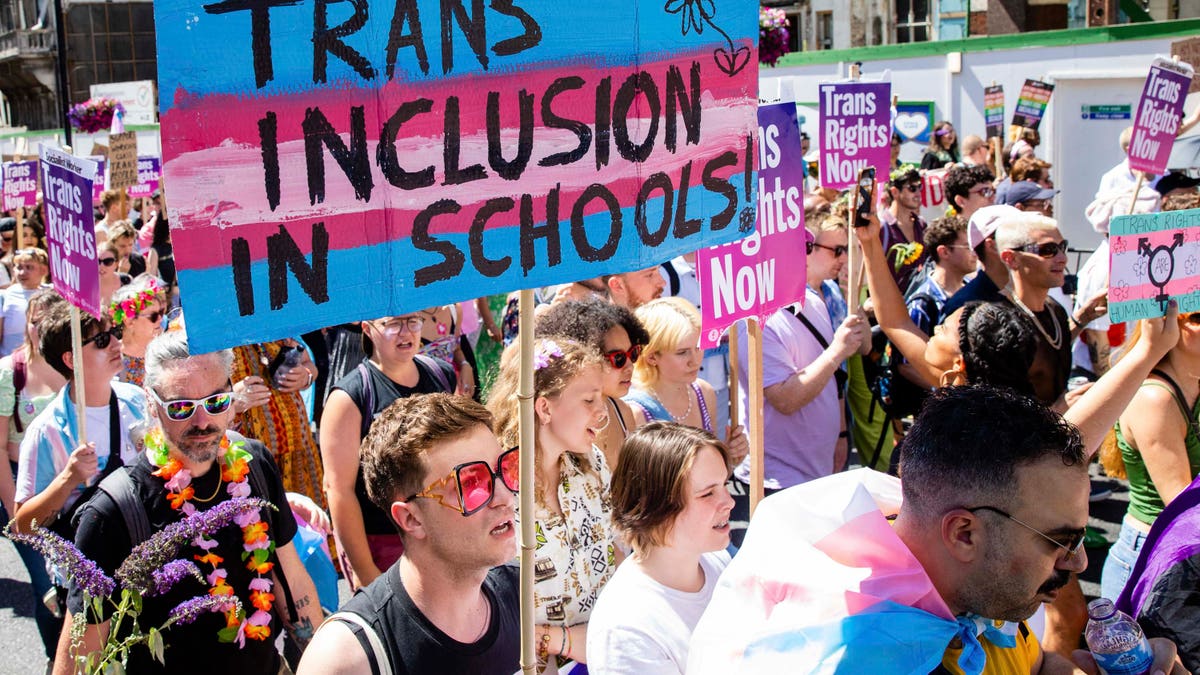Idaho school board shuts down concerned parents on transgender locker room policy
Caldwell School District mom Brittany Gish, her daughter Gianna and Idaho State GOP Sen. Chris Trakel express outrage over a proposed policy that allows biological boys in girls' locker rooms.
Late Friday, December 30, 2022, the 11th Circuit Court of Appeals published an opinion that many in the parents’ rights movement had been waiting for with bated breath. In Adams v. School Board of St. Johns County, the full appellate court held that the school board’s policy of segregating bathrooms based on a student’s biological sex – that is the sex of the student at birth and not the gender the student may at some point identify with – did not violate the law because a student does not have a constitutional or statutory right under Title IX of the Education Amendments of 1972 to use the bathroom of the opposite sex.
Instead, the student must use the bathroom comporting with the student’s biological sex or a single-stall, neutral bathroom at the school. Not only is this a significant win for the rule of law and parents in St. Johns County, Florida, but parents across the entire United States may well breathe a sigh of relief if the Supreme Court accepts this case which surely will be appealed. This is because the Adams decision is in conflict with a 2020 4th Circuit decision.
A bit of history is instructive as the left’s radical push to expand the definition of sex-based discrimination to include not only one’s biological sex, but also a person’s gender identity went mainstream during the Obama administration.
This bold move was set forth in a 2014 Department of Education’s Office of Civil Rights guidance document that interpreted sex discrimination under Title IX to not only include a person’s biological sex but also "claims of discrimination based on gender identity."

A protester voices support for the promotion of transgender ideology in schools during a pro-transgender march in October 2022. (Mark Kerrison/In Pictures via Getty Images)
This guidance opened the door to the Office of Civil Rights to investigate claims by a biological male who identified as a female and vice versa, that the male was being discriminated against because he was denied the use of a woman’s bathroom despite self-identifying as a female. Females, too, who self-identified as males, had a similar basis for a discrimination claim.
In 2016, the Obama administration released additional guidance letters from both the Department of Education and the Department of Justice. These letters went even further as Ed and Justice opined that schools that received Title IX funds were required to allow students to use bathrooms, locker rooms, housing and overnight accommodations that corresponded with a student’s self-identified gender even if it differed from the student’s biological sex.
In August of the same year, however, a federal judge in the Northern District of Texas enjoined the administration from enforcing the guidance, and the Trump Department of Justice rescinded the 2016 guidance in February 2017. Undeterred by the Trump administration’s recission, the left continued its push for open bathrooms.
Ever nimble, they shifted their battle to the courts, and in 2020, in the most consequential decision before Adams¸ the majority on a three-judge panel in the Fourth Circuit held in Grimm v. Gloucester County School Board that a biological female who self-identified as a male had the right to use a male restroom at school. The majority held that this right was guaranteed by the Equal Protection Clause of the Fourteenth Amendment, as well as pursuant to Title IX.
A bit of history is instructive as the left’s radical push to expand the definition of sex-based discrimination to include not only one’s biological sex, but also a person’s gender identity went mainstream during the Obama administration. This bold move was set forth in a 2014 Department of Education’s Office of Civil Rights guidance document that interpreted sex discrimination under Title IX to not only include a person’s biological sex but also "claims of discrimination based on gender identity."
Despite acknowledging that the Supreme Court in Bostock v. Clayton County, 120 S.Ct. 1731 (2020), was an employment discrimination case under Title VII of the Civil Rights Act of 1964 and not a Title IX case, the Grimm court ignored the express limiting language from the Bostock majority, emphasizing the decision did not address Title IX. Instead, the Grimm court determined that Bostock should indeed guide the interpretation of Title IX, finding that the definition of "sex" in Title IX was not limited to biological sex.
Fast forward two years and we return to last month’s well-reasoned and thorough decision in Adams v. School Board of St. Johns County. Indeed, the court provided a reasoned analysis and clear ruling, holding that the St. Johns County School Board’s policy regarding bathroom usage was not a violation of the plaintiff’s equal protection rights as sex-segregated bathrooms served the "important governmental interest" related to the privacy and welfare of its whole student population.
It further held that, because the ordinary meaning of "sex" when Title IX was passed was unambiguously "biological sex," sex-segregated bathrooms allowable under Title IX meant biological-sex-segregated bathrooms.
CLICK HERE TO GET THE OPINION NEWSLETTER
Finally, because Title IX was passed pursuant to the spending power of Congress and gives funding for local schools provided they comply with Title IX, any language that makes receipt of that funding conditional on such compliance with the statute must be unambiguous. No one can reasonably say that in 1972 the word "sex" clearly and unambiguously included the concept of "gender identity."
It cannot be overstated how monumental Adams decision is. Not only does it reaffirm that courts continue to put a premium on the rule of law and common sense, but it also provides hope for other plaintiffs who challenge a radical bathroom policy in their own schools.
America First Legal (AFL) stands with parents who seek to enforce their constitutional and statutory rights as parents and protectors of their children. AFL well recognizes that this battle is a daunting, yet righteous one, and it is proudly representing a coalition of Muslim and Christian parents challenging just such a policy in the Bethel School District in Ohio.
CLICK HERE TO GET THE FOX NEWS APP
Not only do these parents have a powerful precedent to argue in the form of the Adams case, but given the split in the circuits, there is now a clear path for the United States Supreme Court to take up this issue, whether it is a review of the St. Johns decision or another, similar lawsuit, and resolve it consistently with the 11th Circuit in Adams v. School Board of St. Johns County.
If so, the left’s radical push for open bathrooms in K-12 education may well be a sad relic of the past. Unfortunately, though, the battle will continue as even a Supreme Court defeat will not deter nor stop the radicals from trying to sexualize our nation’s children, and those who believe in the Constitution and the rule of law must therefore remain diligent and willing to fight back.











































